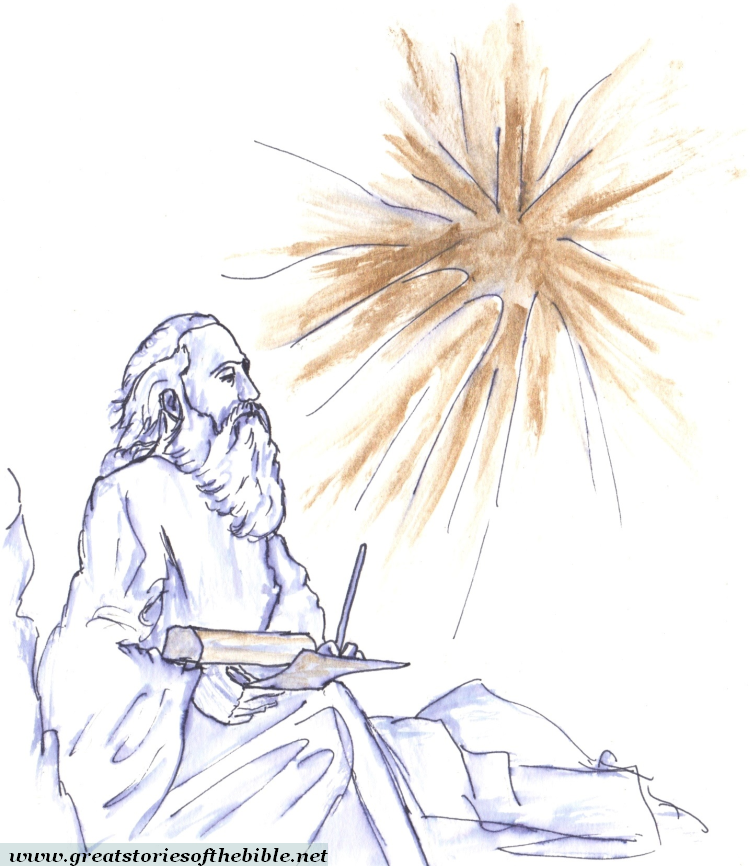Letter of Jude
Keep yourselves in the love of God
The letter of Jude is in reality a homily addressed to some Christians coming from Judaism (see its many mentions of the Old Testament), to warn them against the gnostic heresies we already spoke about in the second letter of Peter. The latter one probably knows Jude and draws from it some of its arguments (see e.g. Jude 4-13 and 2Pet 2,1-17). The author does not introduce himself as an apostle, but as «Jude, a servant of Jesus Christ, and brother of James» (Jude 1); this is probably a reference to the “brothers of the Lord” quoted in Mark 6,3 and Matt 13,55. However, the identification with one of Jesus’ close relatives is quite difficult due to the good mastership of Greek language in the original text and to its late dating (end of the I century AD): the Faith «was once for all delivered to the saints» (Jude 3) and the apostles’ times are far (see Jude 17). It would be one of the Bible cases of pseudepigraphy: he who is writing puts himself under a well-known and highly-valued person’s authority (bringing back his doctrine) to give value to the work he composes.
In the letter of Jude we can find some explicit quotes from texts that did not enter the Catholic Bible (apocryphal Books), but that were known among the Jews: the Testament of Moses (from which Jude takes the description of the angelical wrestle to get the body that prophet) and the Book of Enoch. He uses them in the reasoning against the heretic people, who dare to judge the angels and who behave in a shameful way. «Yet in like manner these also in their dreaming defile the flesh, despise authority, and slander celestial beings. But Michael, the archangel, when contending with the devil and arguing about the body of Moses, dared not bring against him an abusive condemnation, but said, “May the Lord rebuke you!” But these speak evil of whatever things they do not know. What they understand naturally, like the creatures without reason, they are destroyed in these things. [...] About these also Enoch, the seventh from Adam, prophesied, saying, “Behold, the Lord came with ten thousands of his holy ones, to execute judgment on all, and to convict all the ungodly of all their works of ungodliness which they have done in an ungodly way, and of all the hard things which ungodly sinners have spoken against him.” These are murmurers and complainers, walking after their lusts (and their mouth speaks proud things), showing respect of persons to gain advantage» (Jude 8-10.14-16).
The occasion is propitious to get some more details about the canon (the list of the Books that took part of the Catholic Bible). It probably comes from the word “cane”, a unit of measurement used in ancient times, recalling this way the idea of a “rule”. The canon is established by the Church, the community of believers, who unanimously recognize (criterion of universality) in a group of writings the Faith they confess, the history of salvation they lived with God. The Church accepts the Old Testament according to the list of the Septuagint (a Bible version that the New Testament authors quote and the first Christian communities read); it is similar to the Hebrew Bible one, save some addictions (to the Books of Esther and Daniel) and a few Books more (Tobit, Judith, 1-2 Maccabees, Wisdom of Solomon, Wisdom of Ben Sira). For the New Testament they even use the criterion of apostolicity: the more a text is close in time and doctrine to the apostles’ preaching (and therefore is close to Jesus, the source of Christianity), the more it is valid. The Catholic canon of 46 + 27 Books is mostly established by the end of the IV century AD, with the Fathers of the Church Athanasius and Jerome; it will be solemnly confirmed in the Councils of Florence (1442), Trent (1546) and Vatican I (1870). The doctrine of inspiration completes the context, putting under the Holy Spirit’s authority the composition of the sacred texts, their acknowledgement as such by the Church, their interpretation. 
«In Sacred Scripture, therefore, while the truth and holiness of God always remains intact, the marvelous “condescension” of eternal wisdom is clearly shown [...]. For the words of God, expressed in human language, have been made like human discourse, just as the word of the eternal Father, when He took to Himself the flesh of human weakness, was in every way made like men» (Dei Verbum, no. 13). God together with the persons who physically composed them are authors of the Sacred Scriptures (see Dei Verbum, no. 11); because the latter ones are real co-authors and not only passive channels to the divine inspiration, to well-understand a Bible text «The interpreter must investigate what meaning the sacred writer intended to express and actually expressed in particular circumstances by using contemporary literary forms in accordance with the situation of his own time and culture» (Dei Verbum, no. 12). Then, we must not forget that the Bible is not primarily a science or a history book: the divine Truth that it teaches, which is valid for all times and is without errors, is only the one «for the sake of salvation» (see Dei Verbum, no. 11). Finally, the interpretation that is a result of human studies is necessary, but not sufficient: «Holy Scripture must be read and interpreted in the Sacred Spirit in which it was written» (Dei Verbum, no. 12).
In the next post we will end our Bible reading with the Book of Revelation.